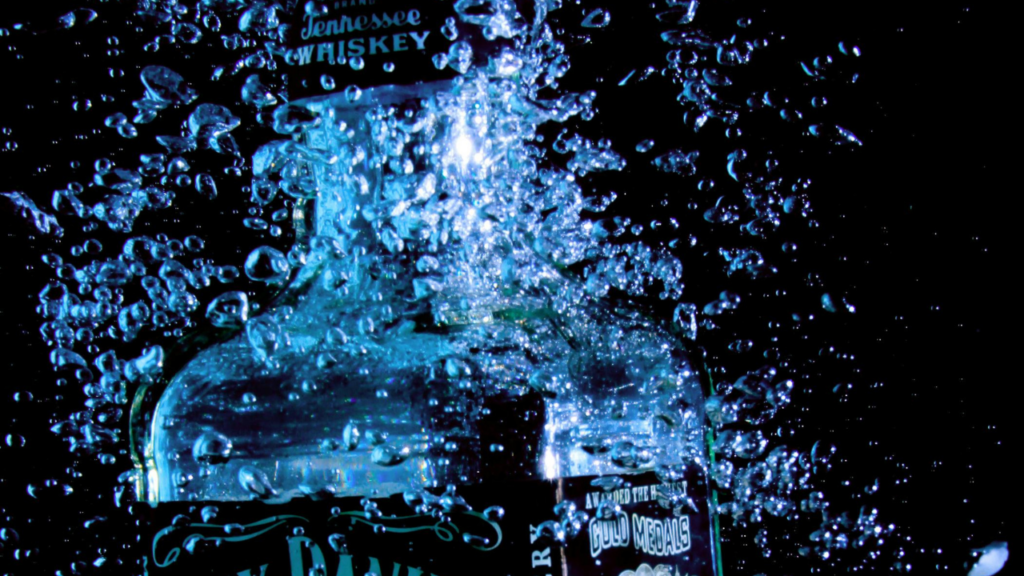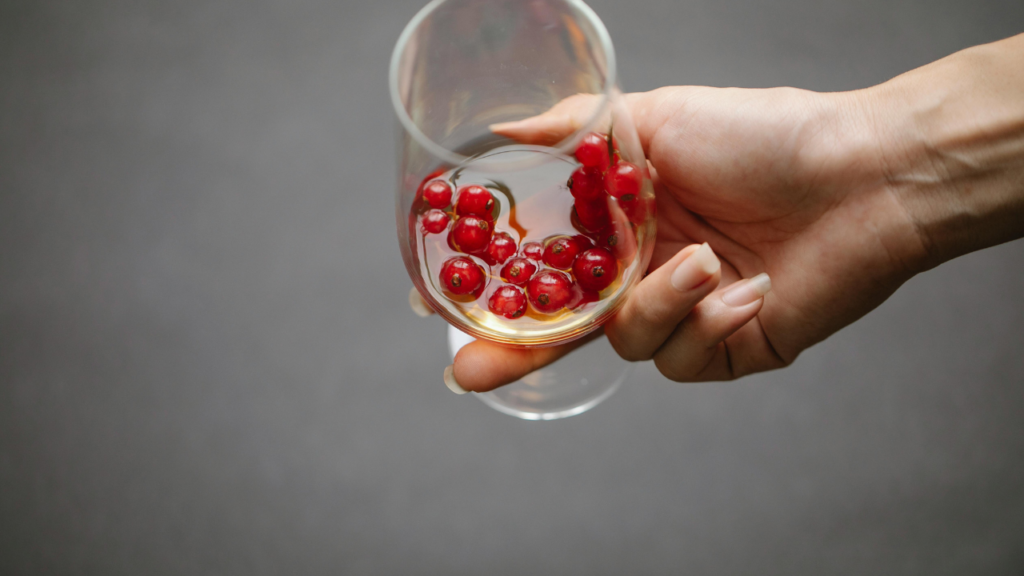Alcohol addiction is a serious and pervasive issue that affects millions of Americans. Recognizing the early warning signs can be crucial in seeking timely intervention and treatment. At The Bluffs Addiction Campuses in Ohio, we’re committed to helping individuals and their loved ones identify these signs and find the support they need. Here are ten key warning signs of alcohol addiction to be aware of:
1. Increased Tolerance to Alcohol
One of the first indicators of a developing alcohol problem is an increased tolerance. This means that over time, a person needs to consume more alcohol to achieve the same effects they once experienced with smaller amounts.
What it looks like: Someone who used to feel buzzed after one or two drinks now needs four or five to feel the same way. They might pride themselves on being able to “hold their liquor” better than others.
Why it’s concerning: Increased tolerance is a sign that the body is adapting to regular alcohol consumption. This adaptation can lead to drinking larger quantities, which puts a person at higher risk for alcohol-related health problems and addiction.
2. Experiencing Withdrawal Symptoms When Not Drinking
Withdrawal symptoms occur when a person who regularly consumes alcohol suddenly stops or significantly reduces their intake. These symptoms can range from mild to severe and potentially life-threatening.
What it looks like: Common withdrawal symptoms include:
- Anxiety or irritability
- Sweating
- Tremors or shaking
- Nausea and vomiting
- Insomnia
- In severe cases, hallucinations or seizures
Why it’s concerning: Withdrawal symptoms indicate that the body has become physically dependent on alcohol. This dependence is a hallmark of addiction and can make it extremely difficult for a person to quit drinking without professional help.
3. Inability to Control or Limit Alcohol Consumption
A key characteristic of alcohol addiction is the loss of control over drinking habits. This manifests as an inability to stick to self-imposed limits or stop drinking once started.
What it looks like: A person might promise themselves or others that they’ll only have one or two drinks, but end up drinking much more. They may find it challenging to leave alcohol unfinished or to turn down drinks at social events.
Why it’s concerning: This loss of control is a clear sign that alcohol use has moved beyond casual or social drinking into the realm of addiction. It indicates that drinking has become compulsive and that the individual’s relationship with alcohol is no longer healthy.
4. Neglecting Responsibilities Due to Drinking
As alcohol use becomes more problematic, it often starts to interfere with a person’s ability to fulfill their daily responsibilities and obligations.
What it looks like: This could manifest as:
- Frequently calling in sick to work due to hangovers
- Neglecting household chores or family responsibilities
- Poor performance at work or school
- Missing important appointments or deadlines
Why it’s concerning: When alcohol use begins to take precedence over work, family, or personal responsibilities, it’s a strong indicator that it has become a central focus in a person’s life—a key characteristic of addiction.
5. Continuing to Drink Despite Negative Consequences
One of the most telling signs of alcohol addiction is when a person continues to drink even when it’s clearly causing problems in their life.
What it looks like: This might involve:
- Drinking despite health issues caused or exacerbated by alcohol use
- Continuing to drink after it has caused relationship problems
- Risking job loss or legal troubles due to alcohol-related incidents
Why it’s concerning: This behavior demonstrates that the compulsion to drink has become stronger than the natural desire to avoid negative consequences. It’s a clear sign that alcohol use has become unmanageable and is likely indicative of addiction.
6. Spending Significant Time Obtaining, Using, or Recovering from Alcohol
As alcohol addiction progresses, it begins to consume more and more of a person’s time and energy.
What it looks like:
- Planning activities around alcohol use
- Spending a lot of time drinking or being hungover
- Neglecting other activities to make time for drinking
- Traveling long distances or going out of one’s way to obtain alcohol
Why it’s concerning: When alcohol becomes the center of a person’s daily routine, it’s a strong indicator that addiction has taken hold. This preoccupation with alcohol can lead to a narrowing of interests and a decline in overall quality of life.
7. Giving Up Important Activities or Hobbies in Favor of Drinking
Alcohol addiction often leads to a gradual withdrawal from activities and relationships that were once important to the individual.
What it looks like:
- Skipping family events or gatherings with friends
- Abandoning hobbies or sports
- Declining invitations to alcohol-free events
- Losing interest in activities that don’t involve drinking
Why it’s concerning: This behavior indicates that alcohol has become more important than other aspects of life that once brought joy and fulfillment. It’s a sign that addiction is isolating the individual and narrowing their world.
8. Drinking in Dangerous Situations
Engaging in risky behavior while under the influence is a serious warning sign of alcohol addiction.
What it looks like:
- Driving while intoxicated
- Operating machinery after drinking
- Mixing alcohol with medications
- Engaging in unsafe sexual practices while drunk
Why it’s concerning: This behavior demonstrates impaired judgment and a disregard for personal safety and the safety of others. It also indicates that the compulsion to drink has overridden the person’s sense of caution and responsibility.
9. Experiencing Blackouts or Memory Loss Due to Drinking
Alcohol-induced blackouts or frequent memory lapses are significant red flags for problematic drinking.
What it looks like:
- Waking up with no memory of the previous night’s events
- Frequently asking friends to fill in the blanks about their behavior while drinking
- Finding evidence of actions taken while drunk with no recollection of doing them
Why it’s concerning: Blackouts indicate dangerously high levels of alcohol consumption. They put the individual at risk for accidents, injuries, and becoming the victim of crimes. Regular blackouts can also be a sign of alcohol-related brain damage.
10. Unsuccessful Attempts to Cut Down or Quit Drinking
Many individuals struggling with alcohol addiction recognize they have a problem and try to cut back or quit, often without success.
What it looks like:
- Making promises to oneself or others to drink less, but failing to follow through
- Trying various strategies to control drinking (e.g., only drinking on weekends, switching types of alcohol) without success
- Feeling frustrated or defeated after failed attempts to moderate drinking
Why it’s concerning: Repeated failed attempts to control alcohol consumption are a clear sign that the individual has lost the ability to manage their drinking. This loss of control is a defining characteristic of addiction.
How The Bluffs Addiction Campuses Can Help
At The Bluffs Addiction Campuses, we understand the complex nature of alcohol addiction. Our comprehensive treatment programs are designed to address not just the physical aspects of addiction, but also the underlying psychological and social factors that contribute to substance abuse.
Our Approach
We offer a range of evidence-based treatments tailored to each individual’s needs:
- Medical detoxification to safely manage withdrawal symptoms
- Individual and group therapy sessions
- Cognitive-behavioral therapy (CBT) to address underlying thought patterns
- Family therapy to repair relationships and build a support system
- Holistic therapies such as yoga and meditation for overall wellness
- Aftercare planning to support long-term recovery
The Importance of Early Intervention
Recognizing the warning signs of alcohol addiction early can make a significant difference in the recovery process. Early intervention can:
- Prevent the worsening of physical and mental health problems
- Reduce the risk of severe addiction and its consequences
- Improve the chances of successful long-term recovery
- Minimize the impact on personal relationships and professional life
If you or a loved one are experiencing any of the warning signs discussed in this article, don’t wait to seek help. The earlier treatment begins, the better the outcomes tend to be.

Addressing Common Misconceptions Regarding Alcohol Addiction
It’s important to understand that alcohol addiction can affect anyone, regardless of age, gender, or socioeconomic status. Some common misconceptions include:
- Myth: Only weak-willed people become addicted to alcohol.
Reality: Addiction is a complex disease influenced by genetic, environmental, and psychological factors. - Myth: You have to hit “rock bottom” before getting help.
Reality: Treatment can be effective at any stage of addiction and early intervention often leads to better outcomes. - Myth: Alcohol addiction only affects the individual drinker.
Reality: Alcohol addiction impacts families, friends, and entire communities.
The Impact of Alcohol Addiction
According to the National Institute on Alcohol Abuse and Alcoholism:
- Approximately 14.5 million Americans aged 12 and older had an alcohol use disorder in 2019.
- An estimated 95,000 people die from alcohol-related causes annually, making it the third leading preventable cause of death in the United States.
- Alcohol misuse costs the United States about $249 billion per year.
These statistics underscore the widespread impact of alcohol addiction on individuals, families, and society as a whole.
Seeking Help at The Bluffs Addiction Campuses
At The Bluffs, we’re committed to providing compassionate, evidence-based care for those struggling with alcohol addiction. Our team of experienced professionals is dedicated to supporting you or your loved one through every step of the recovery journey.
Don’t let alcohol addiction control your life. Take the first step towards recovery today. Call us at 330-919-9228 to speak with one of our admissions specialists. We’re here to listen, provide information, and help you explore your treatment options.
Remember, recovery is possible. With the right support and treatment, you can overcome alcohol addiction and reclaim your life. Reach out to The Bluffs Addiction Campuses today – we’re here to help you start your journey to lasting recovery.








